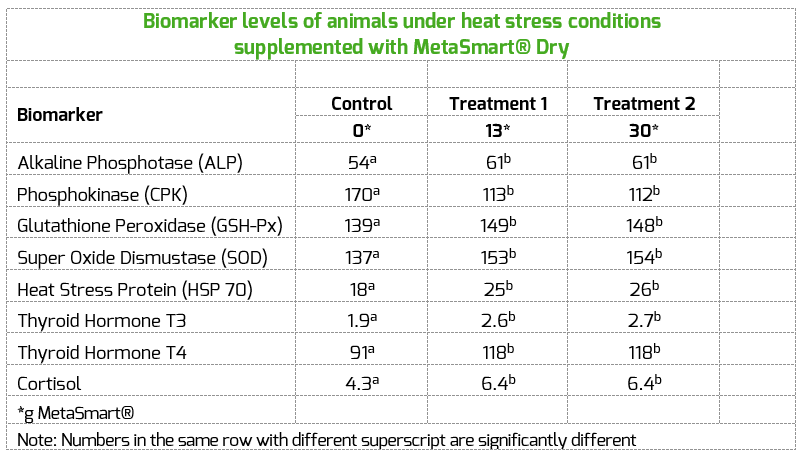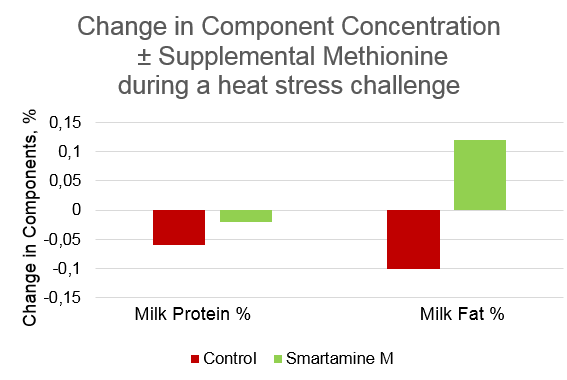


When summer heat and humidity peak, production levels for dairy cows drop to seasonal lows. However, a new means of further limiting the impact of heat stress is focusing attention on essential nutrients.
While mechanical cooling with shade, fans, misters and such remain a first line of defense, research is showing that meeting dairy cow methionine needs with rations properly balanced for amino acids provides another layer of defense. Methionine is an essential nutrient that is best known for its effect on yields of milk, protein, and fat during lactation. Its impacts on health and reproduction pre- and post-calving have been established more recently. Now research is defining how methionine minimizes the negative impact of heat stress.
“The number of dairy nutritionists routinely balancing the amino acid levels in dairy rations for pre-fresh and lactating cows continues to climb. By answering the cow’s needs for methionine, the production of milk and components, health status at transition, and reproductive efficiency can each increase,” says Dr. Brian Sloan, Global Director of Adisseo Ruminant Amino Acids and Protected Nutrient Business.
Research at Nanjing Agricultural University in China showed that cows challenged to temperatures up to 36°C (96.8°F) displayed blood marker levels typical of heat stress. Providing methionine to amino acid balance the rations, typically the first-limiting amino acid, stabilized the markers of heat stress. This suggests that balancing rations by adding methionine helps counteract heat stress in cows.

Research at the University of Illinois looked at the effect of heat stress on lactation performance when fed with or without supplemental methionine. Heat stress had a significant negative effect on milk protein and milk fat content, whereas supplemental methionine significantly improved milk protein and milk fat content.

Further research into the role of methionine as a functional nutrient at the University of Illinois showed how fully meeting the methionine needs of lactating cows mitigates the impact of heat stress. Additional methionine provides dairy cows with the capacity to modulate mRNA abundance making the cows more resilient to the impact of heat stress.
“Being proactive in preparing cows for optimal performance during heat stress, is good herd management. It enables cows to perform better during and after heat stress,” Dr. Sloan says.
Ongoing research will further define dairy cow methionine requirements to maximize her ability to perform at her best during heat stress.